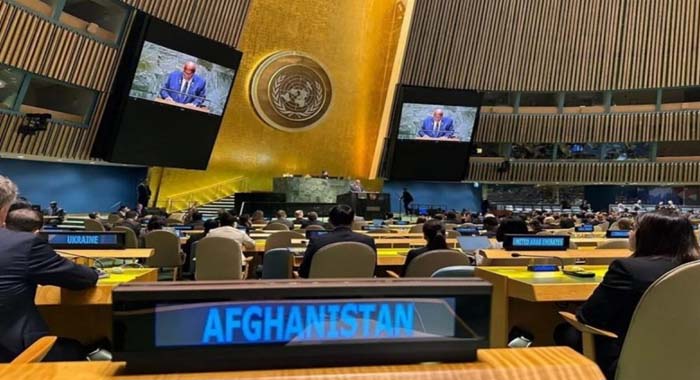Afghanistan has lost its voting rights at the United Nations General Assembly for the third consecutive year, a development that underscores the country’s deepening diplomatic isolation and the paralysis of its international standing since the Taliban seized power in August 2021. The UN confirmed that Kabul has failed to pay its membership dues, which amount to approximately US$200,000 annually, pushing its arrears to more than US$900,000. In accordance with the UN Charter, any member state that falls behind on payments for more than two years automatically forfeits its right to vote.
The loss of voting privileges is more than a technical suspension; it is a stark reflection of Afghanistan’s fractured statehood and the enduring stalemate over recognition of the Taliban regime. Despite controlling the country, the Taliban remain unrecognized by any nation, leaving Afghanistan’s official seat at the UN occupied by diplomats appointed before their takeover. Taliban officials insist that lack of recognition prevents them from transferring funds directly, yet critics contend that the non-payment is symptomatic of a wider diplomatic deadlock, one that isolates Afghanistan from multilateral engagement and strips it of influence in shaping decisions that affect its people.
Naseer Faiq, who continues to represent Afghanistan at the UN, described the situation as evidence of a nation silenced on the world stage. He stressed that the absence of a legitimate, representative government has deprived Afghanistan of a voice in international forums, pointing out that the country has now missed four consecutive UN General Assembly leaders’ summits. Manizha Bakhtari, Afghanistan’s ambassador to Austria, voiced similar concerns, noting that global attention has shifted toward other crises. She warned that Afghanistan’s credibility and standing have sharply eroded, leaving its people to suffer the consequences of neglect.
The loss of voting rights adds yet another layer to Afghanistan’s already fragile position. The Taliban’s inability to break through the wall of diplomatic non-recognition means that Afghanistan remains a pariah state, sidelined from the very institutions designed to uphold collective decision-making. For ordinary Afghans, this diplomatic estrangement risks translating into further humanitarian neglect, diminished aid flows, and a loss of leverage in pressing global concerns such as food security, education, and women’s rights.
What emerges from this episode is the portrait of a country adrift: internationally isolated, internally constrained, and trapped in a cycle of exclusion that grows deeper each year. The UN’s decision does not merely reflect unpaid dues; it is, in effect, a symbolic censure of Taliban governance. Without recognition, legitimacy, and a channel to meet its international obligations, Afghanistan’s seat at the world’s most powerful diplomatic table risks becoming permanently vacant.





